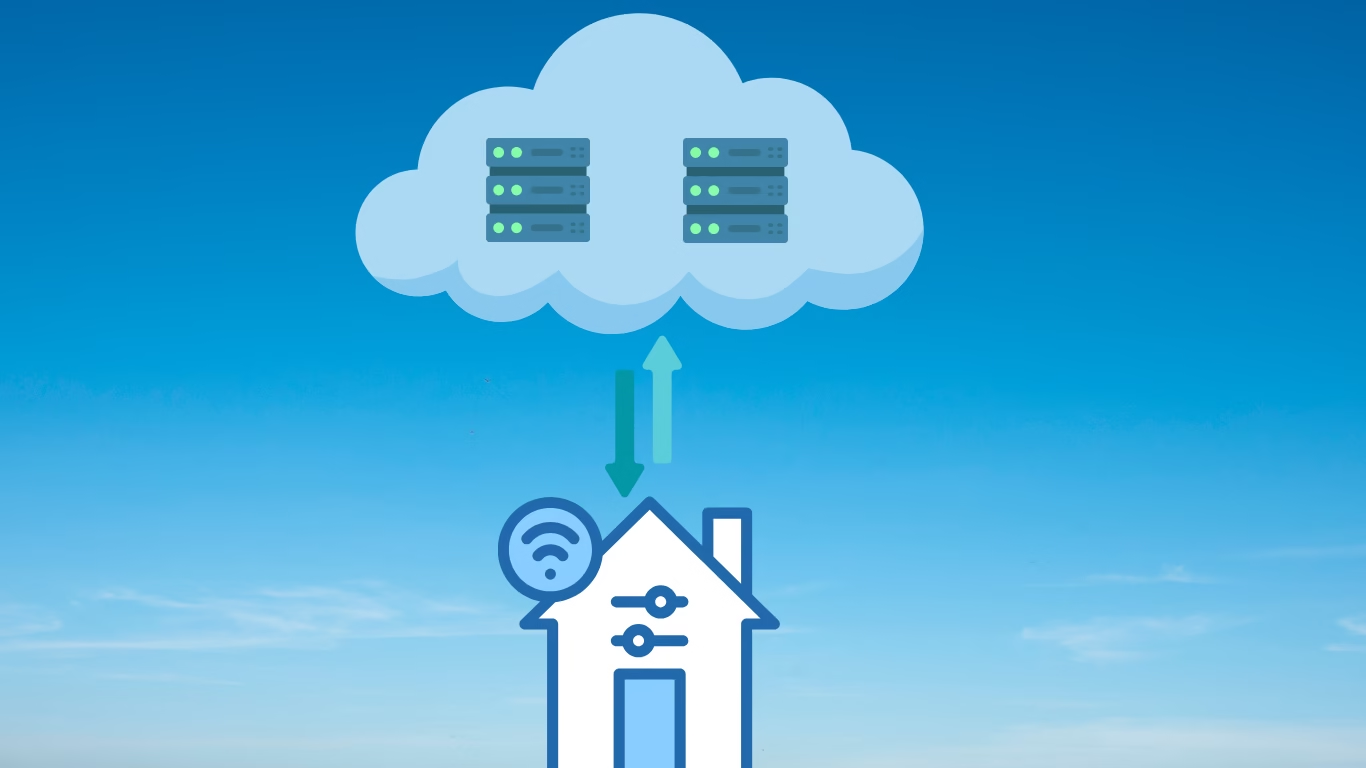Smart Home Cloud Servers: The Good and The Bad
Many Smart home systems rely on remote cloud servers to work. Typically the cloud servers are operated by smart device manufacturers. From device pairing, firmware updates to automations, data storage and analytics, these servers are the backbone of your smart home. When you use your smart home app it travels to the cloud, which processes it and sends instructions back to your smart devices and updates the app. Below are the some of the good things about cloud server and some of the not so good.
The Good Things About Cloud Servers
- Easy setup: Plug and play configuration with automatic device discovery and updates. Generally very easy to use.
- Remote control: Manage locks, lights or cameras using an app or web browser from anywhere with internet access
- Advanced features: Voice recognition, AI automation and analytics typically run in the cloud
- System integration: Enables voice platforms and cross vendor connections via cloud to cloud interaction
The Bad Things About Cloud Servers
- Privacy risks: Usage data, voice clips or video may be stored off site, exposing personal information
- Location: Typically smart home users have no idea where the smart home cloud server they use is located. It could be in any country, including countries that aren’t trusted like Russia, China or Vietnam.
- Security vulnerabilities: Data breaches, insider threats or shared hosting can compromise your smart home
- Internet dependency: If you lose internet connectivity, you lose cloud based controls and automations stop working
- Latency: Commands must round trip to the cloud, introducing delays. Usually only seconds at most, but this is quite a delay.
- Vendor lock in: Proprietary platforms make switching to different smart home systems difficult (sometimes means having to start from scratch) and costly
- Service shutdowns: Companies go bust and this this will potentially render all smart devices from that company unusable!
What Happens When the Cloud Is Unavailable
If the internet or the cloud service is unavailable for some reason, most (probably all) smart home functions will stop working. generally internet connectivity is pretty reliable, but when it goes down the following will likely happen:
- No remote access or voice control.
- Cloud routines and automations fail.
- Devices cannot receive firmware updates.
- No alerts or notifications
- The smart home app will not work
Is There An Alternative To Using Cloud
Yes, there are alternatives to having cloud servers managing and running your smart home devices. This alternative is called a Local Smart Home. With a local smart home a central hub or platform manages and runs all automations from on your local home network.
It is also possible, to give your local smart home access to the internet for remote control and notifications. Doing this doesn’t mean having to use cloud servers, it is direct access from your the app or web browser to your local smart home system.
The most popular local smart home system is called Home Assistant. The good news is Home Assistant is completely free and works brilliantly. There are other local smart home systems like Homey, HomeSeer, Hubitat Elevation.
Conclusion
Cloud based smart home systems deliver convenience, scalability and advanced features, but they also introduce risks around privacy, security, latency and vendor dependency. There are local smart home alternatives to using cloud servers and you can also get hybrid solutions, the best of both worlds.





